Restaurant Forward
Sasha Grumman: Do Chefs Still Need Restaurants?
August 23, 2022
Burned out by restaurant culture and spurned by the pandemic, a generation of chefs are striking out on their own.
Restaurant Forward profiles the technology, trends and people changing the face of hospitality. Have a trend or industry expert you'd like to see featured? Send suggestions to RestaurantForward@getbento.com.
Where are all the workers?
As the hospitality industry climbs out of the pandemic beset by surging prices and a challenging business model, this one question puzzles restaurants more than any other.
In July 2022, the Bureau of Labor Statistics reported that “Eating and Drinking Places” is the single sector in the entire US economy most struggling to regain pre-pandemic employment levels, with 635,000 jobs still unfilled across the country. To stay competitive in a vicious labor market, many U.S. restaurants have been forced to cut service and increase wages. The crisis has shaken the cultural bedrock of the food community, with previously unthinkable instances of overt employee poaching pitting operators against one another.
At the center of the crisis is a question that continues to stump restaurant owners: Why is nobody filling these jobs? What if it's because workers haven't just left one restaurant job, but the restaurant industry altogether?
To find out what’s happening, we spoke to Chef Sasha Grumman. The former Top Chef contestant is an accomplished alum of the traditional restaurant model, having trained in Europe, cooked in Michelin-starred kitchens and served as the Chef de Cuisine and Executive Chef at celebrated restaurants from California to Texas. These days, however, Grumman sets her own schedule. She works primarily as a private chef and is building her own business, Sasha’s Focaccia, far from the reach of any overbearing manager.
Grumman is a prominent voice in the movement to liberate chefs from the four walls of a restaurant. Where restaurant operators see a void of willing employees, Grumman sees a flourishing of culinary creativity that she calls the restaurant world’s “artisanal renaissance.” According to Chef Grumman, it is long overdue.
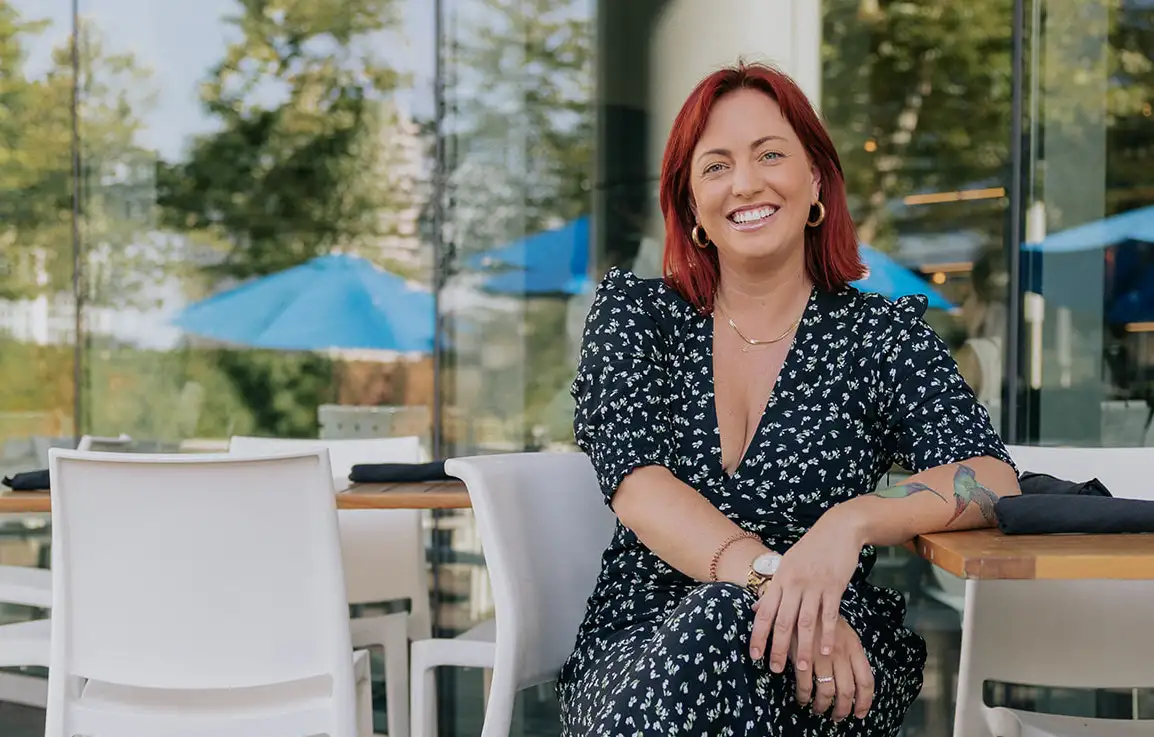
BentoBox: What is the idea of the artisanal renaissance in food?
Grumman: Yeah, “the artisanal renaissance of 2020.” I guess it’s a way of celebrating this entire generation of chefs and restaurant workers who have found ways to earn money from work that makes them happy, away from restaurants.
When COVID hit, a lot of us finally started asking ourselves what we really wanted to be doing and basically restarted our careers. I have friends who started making tortillas by hand in Houston who now have their own brick-and-mortar. Same thing with an ice cream guy here in Houston; he also now has his own brick-and-mortar. I know someone who used to be a server in the business, but started making pottery and is now uber successful with it. Really, there are too many of us to count.
A lot of private chef gigs and small catering businesses have popped up. There's an endless list of people I am constantly inspired by — not only in Houston, but nationwide — who have taken the leap to start their own small businesses. And here we are, two years later, and a lot of us are still doing it.
What we're seeing right now is just that there's so much more room at the top than we ever thought. There’s enough room for everybody.
Do you think these people won’t go back to working in restaurants?
A lot of us won’t go back to the same jobs we had, I can tell you that. A big conversation that's happening among a lot of my friends is, what is a chef now? Do you have to have a brick-and-mortar to be a chef?
After running and opening up my own business, I think we're as much chefs as anybody else. We're curating these events from scratch. We're doing this alone. And I’m seeing more parts of the business than I would if I had just continued as the exec chef at a restaurant.
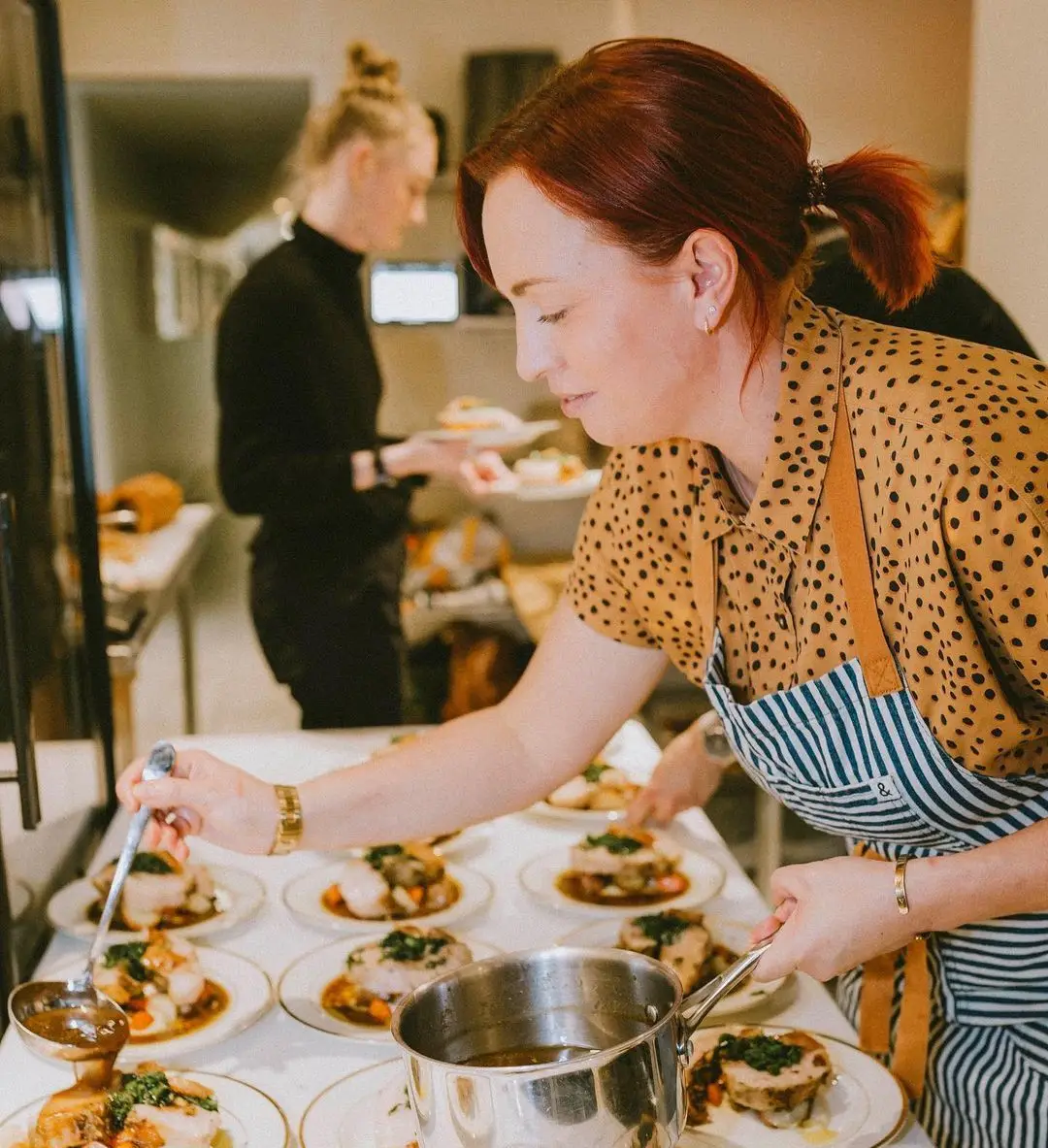
What was it about working in restaurants that you don’t want to return to?
I think I'm still working through a lot of the things I went through in the restaurant world. A week before the pandemic happened, I actually texted my boss and said, “If so-and-so is trying to make me quit, they're doing a good job.” I was at my edge. I was working 100 hours a week. And I don't say that, like, patting myself on the back. There was just so much work to do that it was never enough.
I didn't have the discipline, in that moment, to separate work from my personal life. I would come home and make schedules, work on recipes, study. I would work 16 or 17 hours, and then I would go drink it off, go home and wake up and do it all over again. And there was no work-life balance. Absolutely zero. I look at photos of myself from then and it's just scary. I'm a different person. Like a ghost of myself.
Did you feel like that workload was expected of you?
Absolutely. There is an unsaid expectation that once you're hired, you are beholden to your restaurant and the groups that you work for now, and “no” is never an answer. It’s always, “I’ll figure it out.” They know they can ask you to do anything and you’re supposed to just go figure it out.
And the culture is that everything rolls downhill. Because you’re supposed to be able to do anything, the higher-ups are relentlessly demanding of you. I can’t tell you how many times they pushed me to my breaking point. I once had an owner demand to see me at 9 p.m. on a busy weekend, just so he could bark at me in public about a dish we had decided to cut from the menu. In my dining room. Another time they told me to come up with 14 new dishes in 24 hours. So what did I do? I made it happen. But in the process, I did not expedite lunch service. And I was belittled and cursed at in front of my staff for not being on the line.
Now that day, for example: Was I happy at the end of the day? Yes… for five seconds. I was like, “Man, I crushed today.” But I was miserable. I was exhausted. I was on the verge of mental breakdown every other day. I really did start to think, like, at what cost am I doing this?
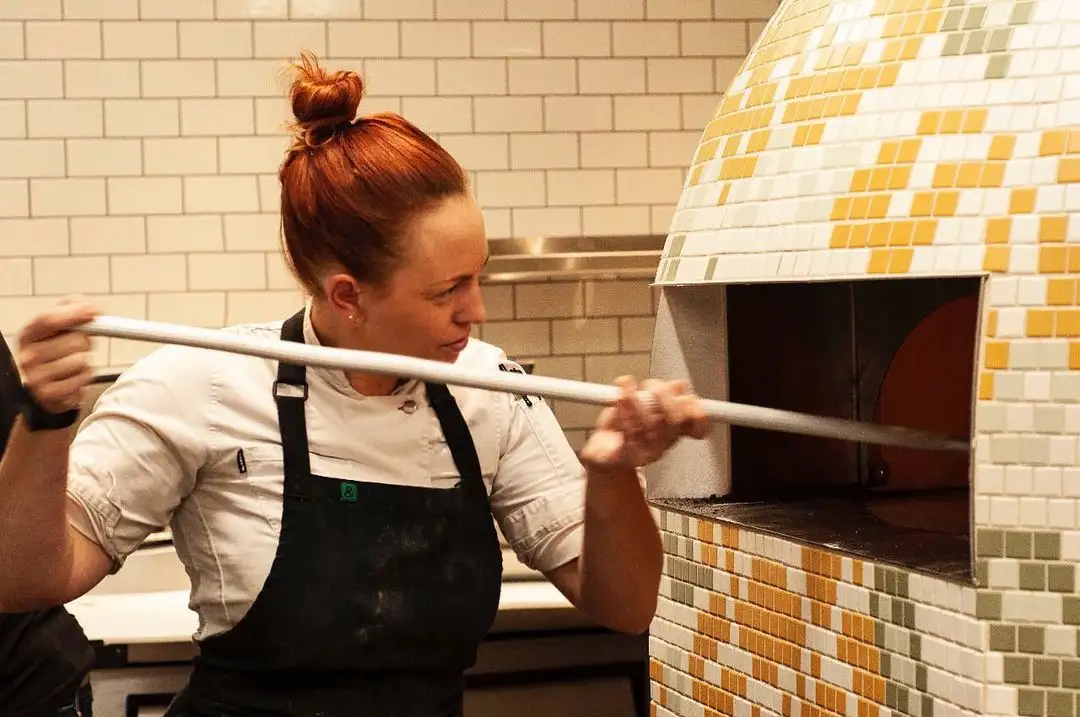
When COVID hit, that must have been kind of a relief?
If I’m being honest, yes. It was terrible to have to furlough our staff, but when I got furloughed a few days later, I just went home and slept for two weeks. It was all I could do.
Looking back, COVID got a lot of us off the hamster wheel. I’d just be working for somebody else if COVID never happened.
Do you think your experience was the norm for the industry? Is this why restaurants are having such a hard time finding people?
I can’t speak for everyone, but I know my experience wasn’t unique. Look, I saw a job posting yesterday for $40/hr. An unfilled line cook job for forty dollars an hour. That’s unreal. That’s how much we have to pay people to get them interested in working at a restaurant. This is a huge problem.
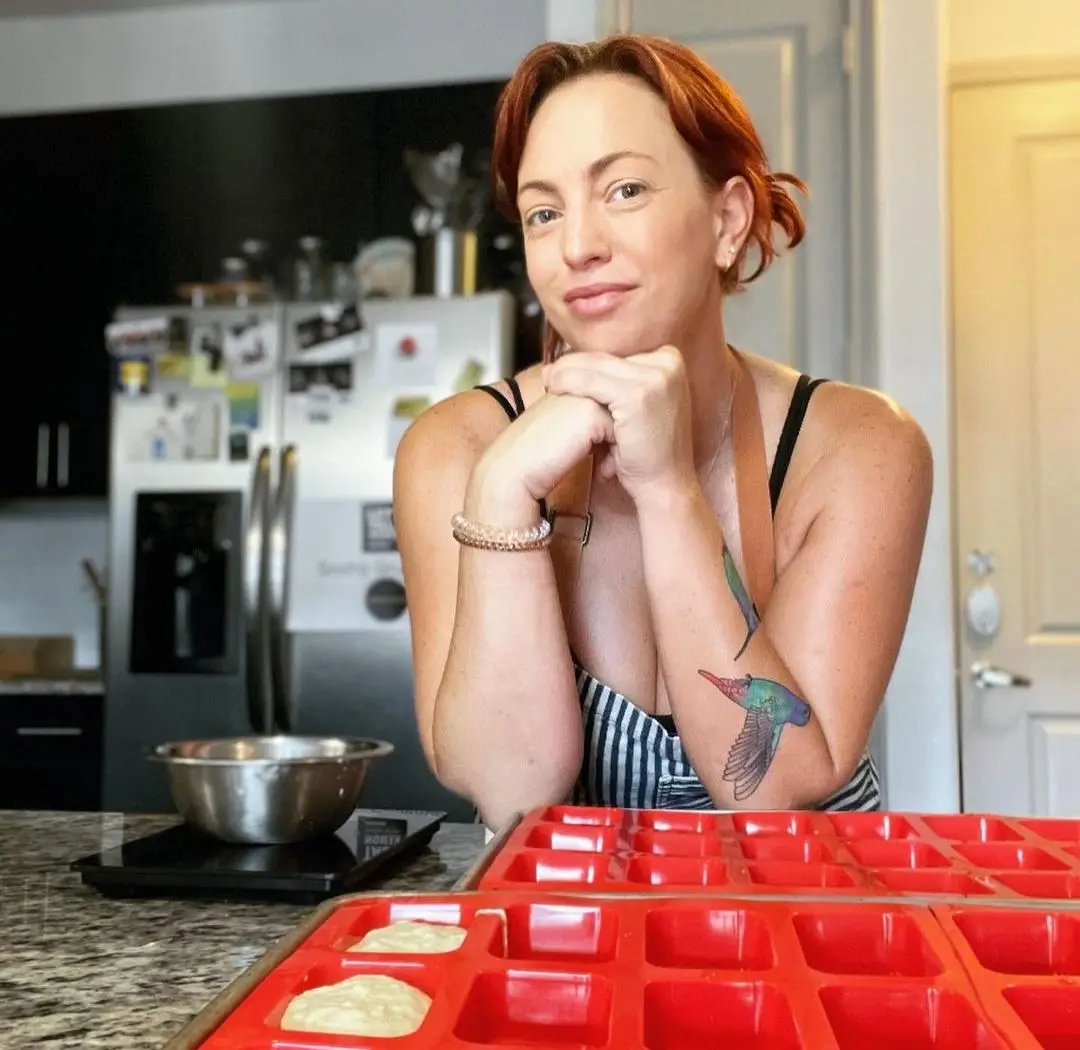
So what do you think those people are doing instead?
In my experience, a lot of chefs found what made them happy and are just making money in a way that doesn’t subject them to that type of situation.
People are shifting their thinking about whether restaurants are the necessary end-point of a career in food. At least in Houston, there's a huge respect for pop-ups and small businesses. With my own small brand, there are so many cool things I can do. I can host cooking classes, I can fly to California, I can cook for a bunch of people on a fabulous ranch in the middle of the mountains, I can go to Oakland and cook with friends from a TV show. I can host a virtual cooking class, I can support a local farm, I can do butcher’s ball — I can do all these things that are just outlets for me to be part of the restaurant community without being in between four walls. There’s no ceiling on what I can do right now, which is something that I love.
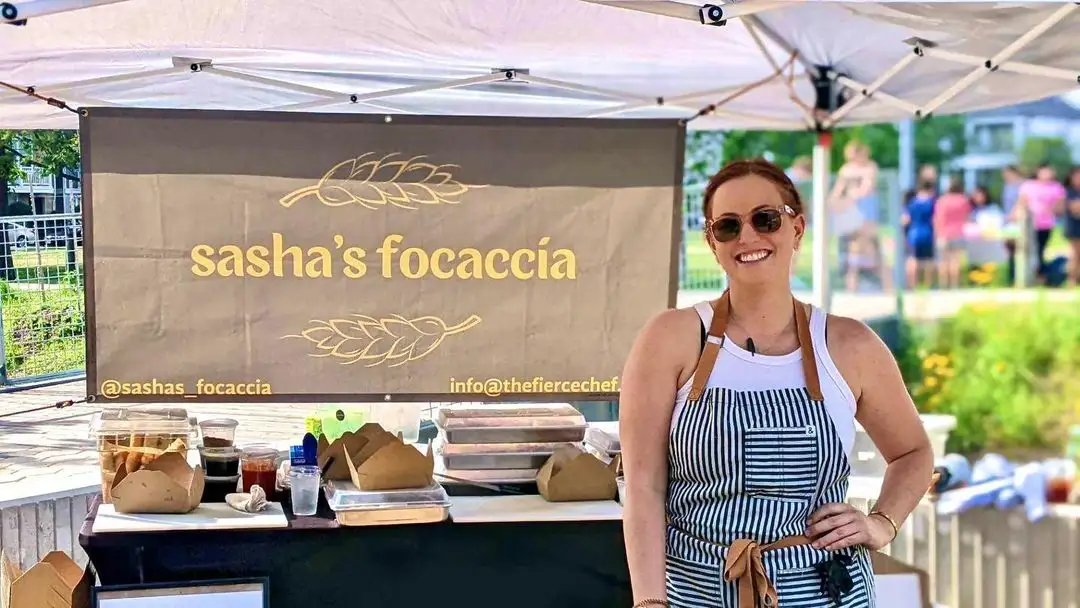
Where did the idea for Sasha’s Focaccia come from?
Baking forces me to slow down. With cooking, I can shoot from the hip. Throw me some ingredients and I can put something together. But baking always forced me to slow down. And that's what happened in March 2020. I was forced to slow down and consider how I was treating myself, how I hadn’t been fostering appropriate relationships with friends. That kind of thing. I had lost hold of what made me, me.
Going through the experience of building this business and fumbling and making a ton of mistakes as I go is an incredible new project because nobody's saying I can't do it. But I'm learning. I think the best part about it is that it's not over if I make a mistake. There's room for growth. When you’re answering to yourself, even the mistakes lead to innovation and new avenues in your life.
In this new career, what would you like to preserve about restaurant life?
I would love to preserve the connections you get with people. The chef network and the beautiful community with all your guests as well. But I do get a lot of this from private chef work. I not only have a fabulous team that is now family — and they've been working with me for two years — but I also have fabulous connections with guests. And I can actually have conversations. I have a team that I trust and I don't have to micromanage. Having those nights, those dinners with my clients and my team, that satiates that desire for the restaurant connections.
Looking back, COVID got a lot of us off the hamster wheel.
So “the artisanal renaissance” is really about chefs starting small businesses. Aren’t those also a lot of work?
Starting a business is a huge amount of work. There are long days. But more often than not, I can see my friends. I can see my family. I've read more books in the past two years than I did in the eleven years I was in the business.
Seeing my peers succeed shows me that there is so much room for everybody. There is no need for me to put down somebody else who’s doing well. Like, when I support them, they support me. And I think what we're seeing right now: there's so much more room at the top than we ever thought. There’s enough room for everybody.
To learn more about Sasha Grumman and Sasha’s Focaccia, visit her website and follow her on Instagram at @thefiercechef.

BentoBox Marketing & Commerce Platform
Deliver Smarter Hospitality
Want to stand out online, bring in more money, engage your diners, and streamline operations?
Recommended
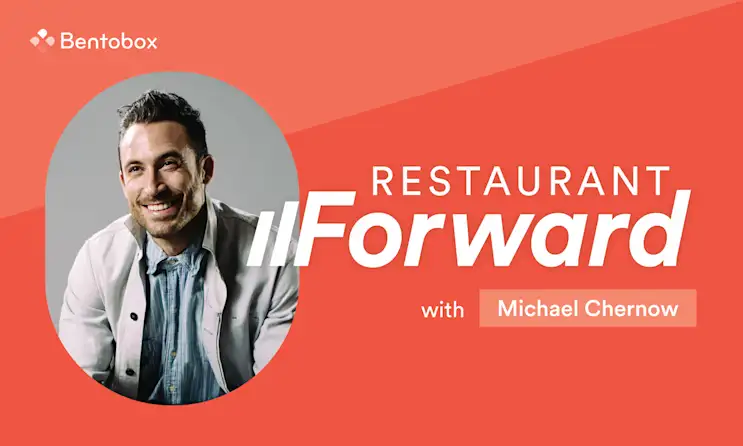
Restaurant Forward
Building Healthy Habits in the Kitchen with Michael Chernow
November 10, 2022
The restaurateur behind NYC’s Meatball Shop and Seamore’s on why more chefs are taking their health seriously, and how you can do the same.

Restaurant Forward
Intentional Hospitality in a Gentrifying World with Studio ATAO
November 21, 2022
How restaurants opening in disinvested neighborhoods can engage with their communities and be part of the solution.
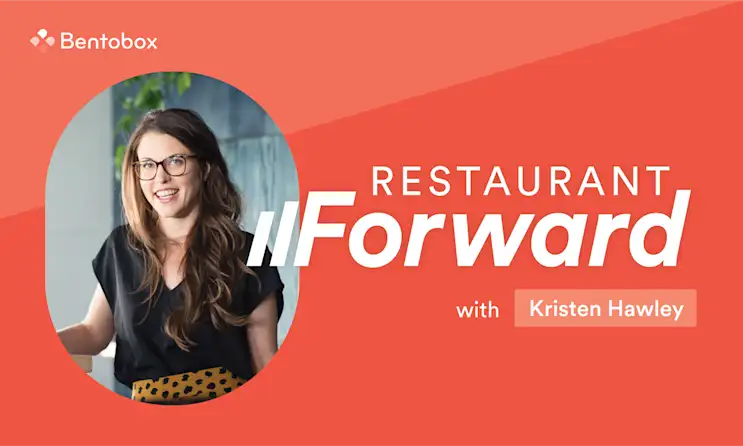
Restaurant Forward
The Next Phase of Food Tech with Kristen Hawley
October 5, 2022
Restaurant technology’s favorite beat writer discusses the relaunch of Expedite, what’s coming for restaurants, and the biggest story of her career.

